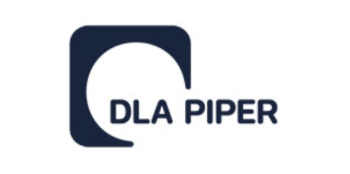Introduction
Regulatory stance
?Industry stance
?Comment
There is an increasing trend towards full publication of data resulting from clinical trials sponsored by the pharmaceutical industry. This was the topic of a recent discussion between the Working Group of the American Chamber of Commerce in Italy and Vincenzo Salvatore, professor of international law at the University of Insubria.
In Italy clinical trials are regulated by Decree-Law 211/2003, which entered into force in January 2004. The number of clinical trials in Italy has grown steadily since 2000, when annual reports on clinical trials were first made publicly available. At present, there are no specific requirements to publish all the information related to clinical trials.
The policy of the Italian Pharmaceutical Authority (AIFA) mirrors that of the European Medicines Agency (EMA). Once marketing authorisation for a medicinal product has been granted, information regarding the clinical and non-clinical developments related to the study are made publicly available, with the exception of commercially confidential information (ie, information that is not in the public domain or publicly available and where disclosure may undermine the economic interest or competitive position of the owner of the information – eg, detailed data concerning active substances, formulation and manufacturing, test procedures and validation, and the names of manufacturers or suppliers of the active substance or the excipients).
On February 15 2013 AIFA issued a press release stating that transparency in the life sciences sector is of utmost importance and, accordingly, that all clinical trial results should be made public. The same concepts were expressed in a press release published on May 2 2013, in which the authority confirmed its full support for the transparency policy adopted by the EMA in relation to the documentation of clinical studies, which should be fully accessible for patients, medical doctors, researchers and regulatory authorities. According to the authority: "[T]he principle of transparency is a fundamental value for AIFA, and therefore shall be pursued providing access to a higher number of data resulting from a clinical study."
The pharmaceutical industry has generally expressed its support for a policy allowing wider publication of data resulting from clinical studies in order to enhance public awareness. However, the industry has also highlighted the importance of protecting confidential and commercially sensitive information. Non-confidential data from clinical trials is available in publicly accessible databases, and the publication of commercially confidential information would not enhance, but on the contrary depress, investments in research and development in Italy and create further obstacles in a market that is already struggling.
In this regard, the position of the Italian pharmaceutical industry is in line with that of the European Federation of Pharmaceutical Industries and Associations (EFPIA) and the Pharmaceutical Research and Manufacturers of America, which recently jointly published a set of commitments entitled "Principles for Responsible Clinical Trial Data Sharing: Our Commitment to Patients and Researchers".
Under the new commitments, biopharmaceutical companies will dramatically increase the amount of information available to researchers, patients and the public. Patient-level clinical trial data, study-level clinical trial data, full clinical study reports and protocols from clinical trials in patients for medicines approved in the United States and European Union will be shared with qualified scientific and medical researchers on request and subject to terms necessary to protect patient privacy and confidential commercial information. Researchers who obtain such clinical trial data will be encouraged to publish their findings. Companies will work with regulators to provide a factual summary of clinical trial results to patients who participate in clinical trials.
The synopses of clinical study reports for clinical trials in patients submitted to the Food and Drug Administration, the European Medicines Agency or national authorities of EU member states will be made publicly available on the approval of a new medicine or indication.
Biopharmaceutical companies have also reaffirmed their commitment to publish clinical trial results regardless of the outcome. At a minimum, results from all Phase 3 clinical trials and clinical trial results of significant medical importance should be submitted for publication.
These commitments were reiterated in a position paper released by EFPIA on November 27 2013. According to this document, EFPIA companies support enhancing public health and research through responsible sharing of clinical trial data in a manner that safeguards the privacy of patients, respects the integrity of national regulatory systems and maintains incentives for investment in biomedical research.
The global biopharmaceutical industry believes that it is possible to achieve these goals without legislative interventions by committing to provide qualified scientific and medical researchers with patient-level clinical trial data, study-level clinical trial data and protocols from clinical trials.
EFPIA companies also support a harmonised definition of 'commercial confidential information and trade secrets' across the European Union through specific legislation, but do not believe that the regulation presently under discussion by the European Parliament will be the right legislative vehicle to do so.
The approach to clinical study reports should also be seen in the context of the regulatory data protection framework, which is of vital importance to incentivise the conduct of research and development, especially in countries or situations where patent protection may not be available.
The solutions presented above appear to strike a good balance between the industry's need to protect commercially confidential information – which is often the result of large investment in research and development – and the regulatory authorities' need to make more data related to clinical studies publicly available, and should be pursued at a political level by the Italian authorities.
For further information on this topic please contact Roberto Valenti at DLA Piper Italy by telephone (+39 02 80 61 81), fax (+39 02 80 61 82 01) or email ([email protected]). The DLA Piper website can be accessed at www.dlapiper.com.



